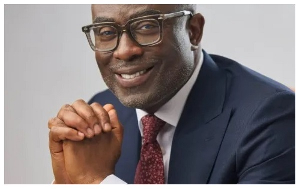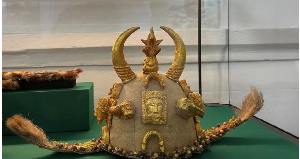- Home - News
- TWI News | TV
- Polls
- Year In Review
- News Archive
- Crime & Punishment
- Politics
- Regional
- Editorial
- Health
- Ghanaians Abroad
- Tabloid
- Africa
- Religion
- Election 2020
- Coronavirus
- News Videos | TV
- Photo Archives
- News Headlines
- Press Release
Business News of Monday, 4 July 2016
Source: B&FT
High cost of credit seen falling
The clamour for cheaper credit in the country could materilaise somewhat in the next 3 to 5 years, as investment advisory firm, InvestCorp, sees interest rates falling on the account of a steady improvement in the savings culture of Ghanaians.
“Importantly, we see the path to sustainable lower and stable interest rates over the medium term depending much more on accumulated savings than inflation and currency risk, which makes the outlook for Ghana’s savings ratio promising for businesses,” said InvestCorp’s latest monthly report.
According to the IMF, in the past 7 years, Ghana’s average gross national savings as a percentage of GDP stood at 16.9 percent compared to the sub-Saharan Africa average of 17.9 percent, which puts the country at a disadvantage in engineering lower interest rates.
In the coming years, however, this trend is expected to change – the IMF expects Ghana’s average gross savings to GDP ratio to increase to 17.9 percent compared to 14.2 percent for the Sub-Saharan Africa region.
The improvement in the gross national savings reflects the proliferation of credit institutions, especially those with access to the informal sector.
Speaking on the IMF estimates, InvestCorp said: “With this anticipation, it is likely that the country’s real interest rates will fall over the medium term, thus providing impetus for overall lower interest rates as demanded by the private sector in recent times.
An improved savings ratio implies the availability of more loanable and investment funds, which is critical for enabling lower interest rates.”
To achieve lower interest rates and deliver sustainably cheap credit to the private sector and government, the country needs to improve its gross national savings ratio, ensure lower and stable inflation and improve the outlook for currency risk.
Whilst business people have been clamouring for interest rates to go down, InvestCorp says the reality is that reducing interest rates for Ghana is more complex than envisaged.
Business lobby, the Association of Ghana Industries (AGI), has continuously bemoaned the high cost of credit for businesses which is currently at least 30 percent per annum.
Just like the AGI, InvestCorp also argues that Ghana must boldly confront its challenges regarding high interest rates to unlock its potential for private sector growth and capital formation.
“As businesses and the public are concerned about the prevailing level of interest rates, our expectation is that with an improved gross national savings ratio, additional efforts will be made to ensure that medium to long term interest rates for Ghana are lowered,” InvestCorp said.
Opinions










